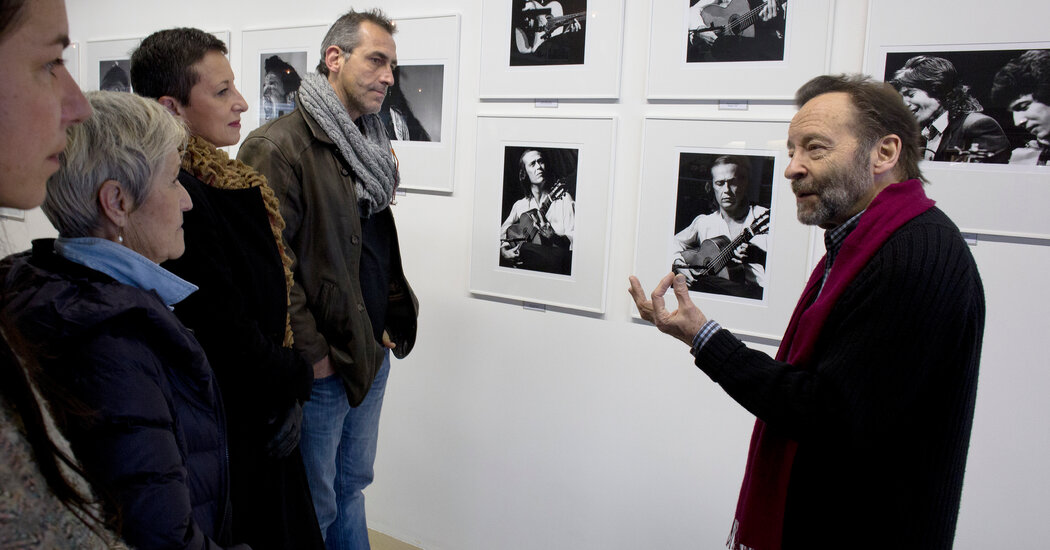
“No one helps anyone,” she said.
In January, a nighttime census led by Paris City Hall estimated that about 2,600 people were living on the streets of the French capital.
Mr. Robert was born in 1936 in Fribourg, a town in western Switzerland, and in the 1960s, he settled in Paris, where he became captivated by flamenco and started documenting famous singers, dancers and guitarists, like Paco de Lucía, Enrique Morente and Rocío Molina.
Mr. Robert was found with small bruises on his head and arm, but his cash, credit card and watch were still on him, suggesting he was not mugged, but might have felt ill and crumpled to the ground.
The Paris hospital authority, citing medical confidentiality, declined to say if doctors who examined him had been able to assess why he had fallen or how long he had spent on the street. The Paris Police Department also declined to comment.
Michel Mompontet, a journalist and friend who first drew attention to Mr. Robert’s death in social media posts that went viral, said it was a cruel irony that Mr. Robert — a “humanist” who relished the emotional openness of flamenco artists — seemed to have suffered from the apathy of bystanders.
“The only person who had the humanity to call emergency services was a homeless person,” said Mr. Mompontet, who works for France’s national radio and television broadcasters and who had known Mr. Robert for the past 30 years. His video denouncing Mr. Robert’s death was widely shared online.
“We have gotten used to something intolerable,” Mr. Mompontet said, “and this death could help us reconsider this indifference.”




